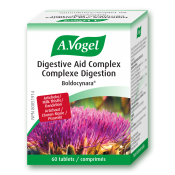It affects men and women equally, can happen to people across ethnicities and races, and happens to people of all ages (though most diagnoses occur before 30).
In spite of the high number of people living with Crohn’s disease (and other gastrointestinal ailments), public awareness is low.
What is Crohn disease?
Crohn’s is a disease that causes the inflammation of the lining of the gastrointestinal tract (GI). These disruptions impede the body’s ability to eliminate waste in an efficient manner, properly digest food, and absorb nutrition.
As a result, people with Crohn’s disease experience:
- Abdominal pain
- Cramps
- Bloating
- Gas
- Loss of appetite
- Fatigue
- Diarrhea
- Reduced appetite and weight loss
- Inflammation of the liver
Crohn’s may be defined differently based on what part of the gastrointestinal tract it impacts. It is possible for the rectum and anus (perianal disease) to be impacted, or for the area that connects the small and large intestines to be inflamed (ileocecal disease).
Because Crohn’s disease is a chronic condition, it may flare up with varying intensities over time. For some people, the symptoms are in remission, mild, moderate, and for others, symptoms are severe, and even life threatening. For some people, Crohn’s occurs without warning, while most people have it develop gradually over time.
What are the causes and symptoms?
At the present moment, doctors and scientists are unsure what causes Crohn’s disease. What they do know, however, is that it is often a combination of environmental factors and genetics. This does not mean that something you did or didn’t do caused or can cause Crohn’s disease! The sorts of ‘environmental’ factors that scientists are talking about include: living in urban areas, living in places with temperate climates, and living in ‘developed’ countries. For some people, Crohn’s is hereditary and their genes may play a role, while for others, it is possible that viruses or bacterium triggered the onset of the disease.
While the causes of Crohn are unknown, doctors have been able to identify what aggravates flare-ups:
- Stress
- Smoking cigarettes
- Nonsteroidal anti-inflammatory medications that cause inflammation, such as naproxen sodium (Aleve), diclofenac sodium (Voltaren), and ibuprofen (Advil)
What can be done to prevent it?
Doctors and scientists working busily on treatments for Crohn’s, though there is currently no cure and no single treatment that will work for everyone. Because Crohn’s is a lifelong illness, the goal of treatment is to reduce inflammations that will trigger symptoms, while also working to avoid complications that may arise from the disease.
Everyday remedies to improve flare-ups
While there are no ‘catch-all’ cures or remedies for Crohn’s, a well balanced and healthy diet is essential in avoiding problems such as dehydration, malnutrition and exacerbating one’s symptoms while experiencing a flare-up. There is no single diet that will work for everyone, and it is recommended that someone with Crohn’s:
- identify what foods trigger flare-ups and remove them from their diet
- identify safe foods that do not make their symptoms worse
- eat small meals every 2 to 3 hours
- avoid mixing liquids and solid foods together – only drinking after meals
- reduce foods that are hard to digest, such as those that are high in fat, contain insoluble fibre and raw fruits and veggies
- Avoid alcohol, sugar, fructose, caffeine and greasy foods
- Identify (with the help of a dietician or physician) whether certain types of supplements such as: iron, Vitamin D and B12, Folic Acid, sodium and potassium and omega 3 fatty acids are required
It is also recommended that one consider foods rich in probiotics that work to enrich and help your body cultivate ‘good’ bacteria in your cut. These bacteria help to develop and maintain a healthy digestive system.
A group of well-known bitter medicinal herbs have been used for decades to relieve digestive problems. They include artichoke, dandelion and boldo, the three ingredients in Boldocynara. Boldocynara is a phytotherapeutic tablet and tincture that is clinically proven to reduce the frequency of digestive disorders by 78% and reduce the impact of their symptoms on everyday life by 81%. Boldocynara works by facilitating the digestion of fats, and by stimulating the secretion of bile. In this way, Boldocynara helps to cleanse and protect the liver, tackling the problem of indigestion at its root cause, rather than merely aiming for a temporary, symptomatic fix.
Don’t let digestive problems get you down! Live life boldly!
References
http://www.webmd.com/ibd-crohns-disease/crohns-disease/tc/crohns-disease-what-increases-your-risk
http://www.mayoclinic.org/diseases-conditions/crohns-disease/diagnosis-treatment/treatment/txc-20342074
http://crohnsandcolitis.ca/About-Crohn-s-Colitis/Are-you-at-risk
https://www.ncbi.nlm.nih.gov/pubmed/23166905
http://crohnsandcolitis.ca/Crohns_and_Colitis/documents/CCF_59189_FOODFORTHOUGHTEN_1.PDF





